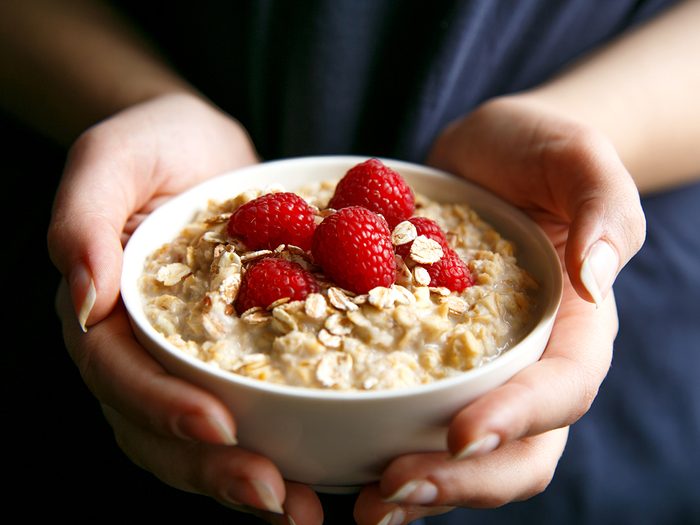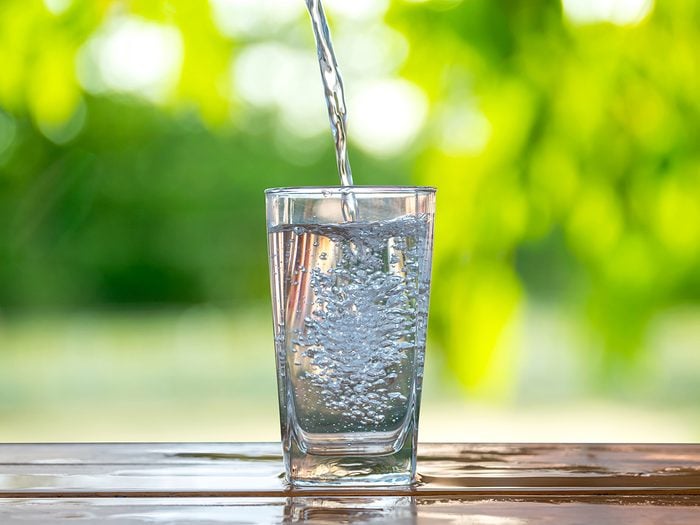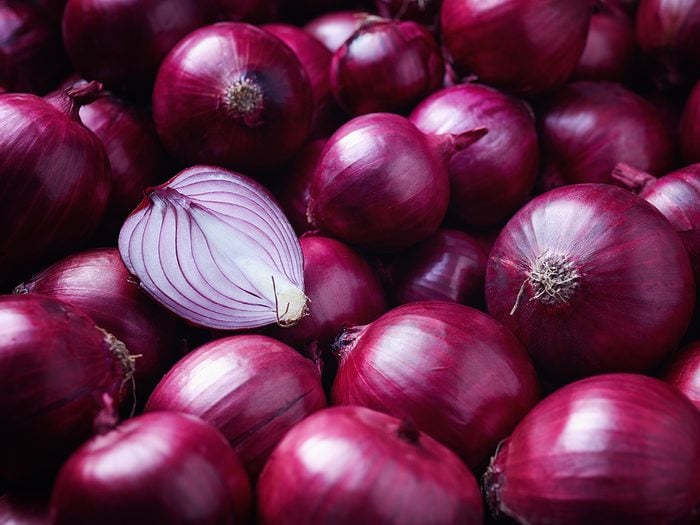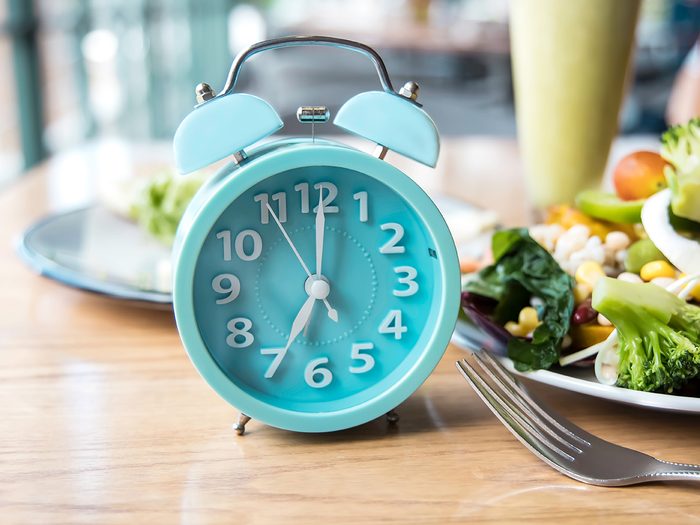
Foods that make you poop
Dietary fibre produces better poop. Because it isn’t digested, it bulks up and softens stool, making it easier to pass. According to Health Canada, most of us get just half of what we require (women should have 25 grams a day, and men 38). “If you’re eating whole grains, or about half your plate at each meal is fruits and vegetables, you’re likely meeting your needs,” says Whitney Hussain, a registered dietitian in Vancouver who specializes in gastrointestinal disorders. You can also choose cereals with added fibre. Psyllium is a popular supplement, but watch out for inulin, which triggers a sore stomach in some people. Hussain suggests adding fibre to your diet gradually to prevent gas and bloating. “Just have one serving of a higher-fibre food, and slowly increase it each day. Spread the fibre throughout the day, rather than having it all at once.”
The high sorbitol content in dried fruits such as prunes, figs and dates acts as a natural laxative. So does flaxseed. Fresh pears and apples sometimes do the trick. Eating breakfast can increase your colon activity and trigger a bowel movement.
Discover 12 easy ways to add more fibre to your daily diet.

Stay well-watered
Without enough fluid, your stool will be dry and hard. Other signs that you probably need more water—or other sources of fluid, such as milk, juice, soup and tea—include dry lips and mouth, dark urine and urinating fewer than four times a day. The ideal amount of hydration is different for everyone and depends on factors like your body size and activity level.
Find out what happens to your body when you start drinking eight glasses of water a day.

Think twice before eating these foods
Processed foods containing refined grain, such as white flour, may have a longer shelf life, but they won’t do you any favours in the fibre department. They’re also often higher in fat, a common constipation trigger. White rice, as opposed to its whole-grain brown counterpart, can be another culprit. Carbonated beverages may give you gas and bloating, as can certain foods like cabbage, onions and lentils. “For some individuals, drinking alcohol may cause gastrointestinal upset and loose stools,” Hussain adds. (Candies and diet drinks sweetened with sorbitol and other sugar alcohols, such as xylitol, can also have you running for the bathroom.)

Don’t blame caffeine!
If you count your morning brew among the foods that make you poop, you’re not alone—but it’s not necessarily the caffeine that’s doing the trick, as both regular and decaffeinated coffee appear to have the same effect. The warmth could be playing a role in speeding up the system. Coffee also contains about 100 different compounds, one or more of which may trigger the production of stomach acid and the release of digestive hormones, and increase activity in the large intestine.
Experts agree: this is the best position to poop.

Mind your manners
How you eat is just as important as what you eat. Avoid gulping your food or drinking through a straw, which can cause you to swallow air and make you gassy. Same with talking a lot during a meal. Eat on schedule—postponing a meal or snack can give you bloating. Hussain has this tip: “Focus on your hunger cue, so when you’re feeling full, stop eating, rather than eating until you’re super stuffed.”
Now that you know the foods that make you poop, find out what your poop reveals about your health.